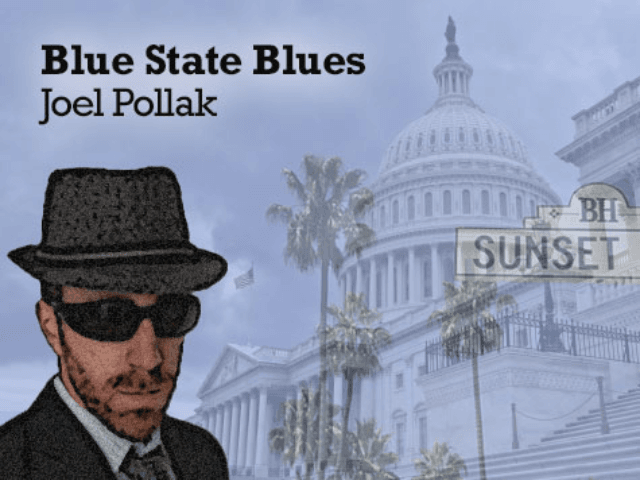A new poll shows that Sen. Ted Cruz (R-TX) is in serious danger of losing his re-election bid to Democrat challenger Rep. Beto O’Rourke (D-TX), who is just three points behind — well within the margin of error.
There could be several reasons that Cruz is in trouble.
In 2016, he infamously declined to endorse Donald Trump at the Republican National Convention after he misread his conservative base, perhaps paying more heed to the “Never Trump” commentariat than actual voters.
Before that, Cruz joined radio host Glenn Beck at the border in 2014 to present teddy bears and soccer balls to the unaccompanied minors who were streaming across, hoping for amnesty. That alienated border hawks without attracting support from amnesty fans.
In addition, Cruz is up against the same problem that Republicans everywhere are facing: liberal voters are highly motivated to avenge Hillary Clinton’s loss in the 2016 presidential election, regardless of how well Trump is doing.
But there is another reason that Cruz is struggling: demographics.
Texas has a large and growing immigrant population. And immigrants tend to vote for Democrats. Some like the offers of expanded government services. Some feel more comfortable with the left’s cosmopolitan outlook. And some, rightly or wrongly, interpret Republican attacks on illegal immigration as hostility to all immigrants.
Moreover, few immigrants to the United States come from countries that share the same ideas of liberty that Americans cherish. Most other countries — even in the “free” world — place a higher emphasis on the community than on the individual.
Even Canada, which shares so much in common with the U.S., enshrines “Peace, Order, and good Government” in its Constitution Act, as opposed to the “Life, Liberty and the pursuit of Happiness” in our Declaration of Independence. Such differences of outlook are even more pronounced in more explicitly socialist, or statist, countries.
The fact is that American liberty is the product of certain specific cultural and historical circumstances. The Puritans who first settled here were religious dissidents whose peculiar version of Protestant Christianity placed unusual emphasis on individual salvation. Their values shaped our early governing institutions, and left an enduring legacy.
Happily, these early values are robust enough to include people from diverse religious and racial backgrounds — when people choose to embrace them.
The massive wave of immigration from the poorer parts of Europe in the late nineteenth and early twentieth centuries greatly enriched the U.S., but at times brought new ideological challenges to classic American values. Disruptive social and political movements like anarchism and communism made their mark, and helped provoke the Immigration Act of 1924, which shut the door to new arrivals — tragically, as it turned out, since it cut off an escape route for millions of Jews during WWII.
Since the door was opened again in the 1960s, immigration has accelerated, and is happening at an extremely rapid pace — even without illegal immigration.
In addition, the immigration wave has coincided with our own internal “culture war,” in which Americans, often prodded by the left, have been questioning the basic values of our society.
The pace of immigration may limit the pressure immigrants feel to adapt, and our own self-doubt limits Americans’ will to insist on them adapting.
As a result, it is not clear that our uniquely American values are being transmitted — either from one generation to the next, or from established citizens to new arrivals.
The irony is that these values are the reason that the U.S. is so attractive to new immigrants. They are the basis for America’s astonishing prosperity, for our tolerant civic culture, and for our continuing global leadership. And yet many immigrants tend to vote for the political party that is most skeptical about these values.
The phenomenon is familiar to us from domestic migration. Many voters in Democrat-dominated “blue states” are moving to Republican-controlled “red-states,” where taxes are lower and job opportunities are greater. And yet the former blue-state voters tend to retain their old political preferences.
As a result, states like “Live Free or Die” New Hampshire turn “purple,” then blue. They are slowly being transformed by their success into clones of the failing states from which voters are fleeing.
Sen. Cruz may survive Rep. O’Rourke’s challenge. But Democrats are determined to “turn Texas blue,” if not this time, then the next. And they are confident that they will use America’s changing demographics to their advantage, no matter what kind of immigration reforms Washington eventually passes.
Republicans who support amnesty will not be spared the political fate of those who oppose it.
Beyond short-term politics, the question is how to ensure the survival of the American creed.
Joel B. Pollak is Senior Editor-at-Large at Breitbart News. He was named to Forward’s 50 “most influential” Jews in 2017. He is the co-author of How Trump Won: The Inside Story of a Revolution, which is available from Regnery. Follow him on Twitter at @joelpollak.

COMMENTS
Please let us know if you're having issues with commenting.